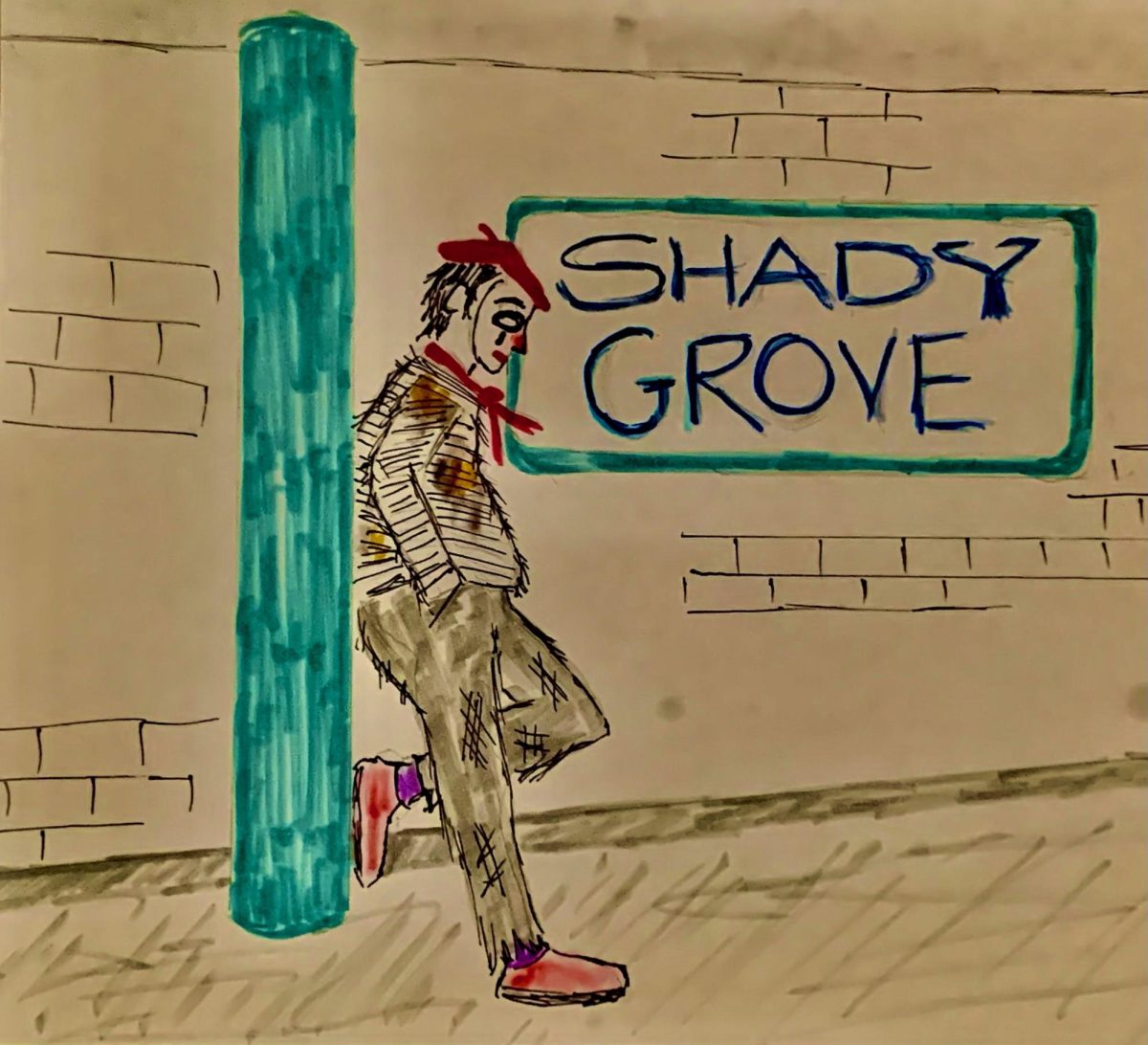When the dishwasher absently tossed Pierre’s paring knife in with the other soiled utensils, the French chef leaped over the prep table, waving his carving knife around like a deranged samurai. “Don’t ever touch my knives again, idiot!” he screamed, “or I’ll add your sticky fingers to my bouillabaisse!”
The dazed boy stepped back in fear, pinning himself against the metal dish table where he had been wiping off dinner scraps and loading the machine for the next cycle. “Crazy codger,” the boy muttered under his breath, as he wiped a gob of ketchup off his hands. “Glad you won’t be around much longer.”
But Pierre didn’t hear. He was back tending the seafood soup, a specialty from his hometown of Marseille. After sipping a few teaspoons of the tomatoey stock, he adjusted the seasoning with more chopped fennel and a pinch of saffron. Turning to a boiling pot on the back burner, he plunged a live lobster headfirst into the boiling water, then transferred it two minutes later to a colander. Piles of cod, cockles, mussels, and shrimp—bought just that morning—lay waiting for their fate.
Candy, one of the veteran waitresses, stuck her head in the kitchen, and shouted, “Two chowdahs and a blue plate special! Can we pick up the pace back here?” When she got no answer, the waitress maneuvered her bulky frame through the swinging doors and stood in front of the Frenchman, arms akimbo. Eyeing the heap of raw seafood, she whistled. “Wow. I imagine that lot cost a pretty penny. Does Spiro know about this? It would be a lot easier to heat up a few cans of those commercial soups,” she said pointing to several large cylinders stacked against a wall.
Pierre shook his head. “I make special soup today. The guests taste my bouillabaisse, they think they die and go to heaven.”
“Yeah, if they don’t starve to death first! Look, Pierre, I know it’s been an adjustment working in a Long Island diner, but the people who come here place a premium on fast and filling. They don’t expect the Ritz.”
Candy was frustrated, but she felt some pity for the French transplant. A week ago, he had tried to introduce “Steak Diane” as a substitute for the diner’s Salisbury steak. In a dazzling display of culinary showmanship, he flambeed an 8-ounce filet mignon with a splash of cognac, then served it over a bed of mashed potatoes with a medley of wild mushrooms and brandy truffle sauce. It looked and smelled fantastic, but the wild flames left black soot on the diner walls, and the customer refused to pay more than the price of a Salisbury steak. Plus, Spiro did not have a liquor license and told Pierre to keep all alcohol in his car.
“Spiro’s Diner has its brand, Pierre. Casual, simple, fast. You ain’t gonna change that.” When Pierre ignored her comments, Candy turned in a huff and marched back out to charm her impatient regulars.
Pierre sighed. Back in Marseille, he had been executive chef in a one-star Michelin restaurant overlooking the Mediterranean Sea. Every morning he would visit the local market, buying only the freshest ingredients and combining them into a harmony of flavors that tantalized the tongue. There he had the freedom to create unique and memorable dishes, dishes that sealed his reputation as one of the best chefs in Provence. And then COVID hit. Out of work for almost a year, he came to live with his brother in America who knew people in the local food establishment and helped sponsor him for a work visa.
But so many places just wanted short-order cooks, people who could quickly fry up a burger for takeout. And Pierre was not a cook. He was a chef. And only a real chef understood the complex alchemy created by adding just the right spice or herb. The kitchen to a chef was equivalent to an artist’s atelier, the cuisine a reflection of his personality.
Pierre tried to make his point but without success. For instance, the first place he worked belittled the labor he put into his garlic aioli and bechamel sauces. “Just top it with the Alfredo, Pierre,” the owner had said, overpowering the subtle flavor of his carefully poached salmon with a ladle full of the gooey, cheesy substitute. Another manager laughed when Pierre suggested they add his homemade “foie gras” and toasted crostini to its hor d’oeuvres offerings. “You want me to serve liverwurst and crackers?”
These bistros in America have it wrong, he lamented. The food is bland, uninspired, and sloppily plated. No wonder the customers eat and run.
Spiro had given him a little more room to experiment but even he nixed the chef’s attempt to substitute crepes with blueberry compote for the standard blueberry pancakes. “Use the Bisquick mix, Pierre,” he said. “It has the consistency our diners expect.”
This is why Americans are so overweight, Pierre concluded as he read the ingredients on the box. Vegetable Oil, Corn Starch, Dextrose, Monoglycerides! This is not real food!
Pierre especially hated the spongy loaves of bread in America. When his attempt to make fresh croissants for breakfast was met with indifference, he squished an entire loaf of Wonder Bread into a Nerf-like ball and threw it across the room, barely missing a customer sitting at the counter.
Spiro pulled him aside. I’m sorry, Pierre, but this is not working out. Take tomorrow night’s shift and I’ll still pay you a full week’s salary. You’re just not the right fit for my diner.”
Undeterred, Pierre thought he could turn things around, and impress Spiro with his ingenuity. By creating one last mouth-watering experience, he would show Spiro that the diner could expand its vision, attracting those who wanted something more inspiring. Why, even substituting French names—champignons for mushrooms or pommes frites for French fries—would give the place more character.
Absorbed in his bouillabaisse and other dishes, Pierre lost track of time. When everything was finally done to his satisfaction, he walked triumphantly into the front room to offer the guests a free sampling. But it was well past dinner and only a handful of tables were left, most waiting to pay. Candy had already taken off her apron and was counting her tips. She looked up at Pierre. “You missed the dinner rush, what little there was of it. Charlie and I managed without you. It’s likely to be dead here the rest of the night. Nobody comes to a diner on a Tuesday night.” And with that, she grabbed her purse and took off.
When the last customer left, Pierre slumped back into the kitchen. How hard he had worked, yet no one was left to appreciate the sumptuous feast he had so carefully prepared. Grabbing the ladle, he poured himself a bowl of the bouillabaisse and sat at the front counter. After inhaling the intoxicating aroma, he broke off a piece of crusty baguette and used it to fish out a morsel of lobster. This is the way to feed the soul, he thought, closing his eyes. The rich flavors brought him back to his kitchen in Marseille, shucking oysters, deboning rockfish, grilling fresh prawns.
Suddenly, a noise in the kitchen broke his reverie. Mon Dieu, he cried, standing up to investigate. Can’t a man have a quiet meal? Grabbing a nearby spatula, Pierre swept through the swinging doors, thinking it was a suitable tool to chase out the stray dog or cat that probably snuck in the back. To his surprise, a disheveled figure was hunched over his soup, shoveling spoonful’s into his mouth. “Arret! Stop!” Pierre shouted, brandishing his tool.
Startled, the man looked up, letting the tomatoey broth drip down his chin. “Please, sir,” he said. “Normally I make supper with what’s in the dumpster. You know, a few scraps here and there. But something here smelled so, so…” he stopped to find the right words. “Alluring, so divine, I could not resist.”
The man’s face was drawn, and his dirty hands shook slightly, but his eyes held a promising light.
“You like my bouillabaisse? Alluring, you say? Divine?” Pierre inquired, and when the man closed his eyes and said it was “ecstasy,” the chef realized how much he craved the companionship of a food connoisseur.
“Please sit down, my friend,” he said. “I make special meal today, and it would give me great joy to share my bounty with you.”
The beggar could not believe his luck. He removed his fingerless gloves and a stained tam and followed Pierre through the swinging doors. Seated near the front window like a regular guest, he gently fingered the tiny canape Pierre laid before him. “An amuse-bouche,” Pierre said proudly. “Caviar and crème fraiche to tease the mouth.”
The second course was a bowl of Pierre’s bouillabaisse, teaming with fresh seafood. Watching the man sop up the soup with the bread, Pierre talked about Marseille, how you could sit on the restaurant patio with some mussels and a glass of wine, watching the sunset. The man nodded in appreciation, saying that a glass of wine would go perfectly with such a wonderful meal. Pierre ran to his car to fetch a bottle of Bordeaux that he had purchased that morning.
“For main course, we have Boeuf Bourguignonne avec les haricot verts.” Seeing the man’s eyes light up, Pierre puffed up with pride.
“To Buf-Borg-in…, well you know,” the beggar said, raising his glass in toast. “What goes into this wonderful stew,” he asked, as the tender morsels of beef fell apart on his tongue. “I feel reborn.”
Pierre was in his element. He wagged his finger with a coy smile. “Now, now, my good man. A chef never reveals his secrets. But it does have a good splash of the Burgundy.”
A knock at the entrance interrupted the men’s convivial meal. Pierre ventured over, opened it slightly, said a few words to the unhappy people standing outside, then put a sign up on the door, “CLOSED FOR SPECIAL EVENT.”
Pierre rejoined his guest, pouring glass after glass of the rich wine. Out of the corner of his eye, he could see a few cars pull up outside, their occupants approach the door, then leave with a puzzled look. Several waited around in the parking lot watching the animated men feasting at a table inside.
After Pierre had presented dessert—crème brulee caramelized with his butane torch—he cleaned the plates while the sated beggar enjoyed a sniffer of cognac. It was truly a magical evening, Pierre sighed. At least on my last day, a person who truly appreciates my culinary skills.
The next day, Spiro was peppered with inquiries from his regular customers. “How often do you hold that special event? Can we make a reservation? How much does it cost? Does it come with a wine pairing or is that extra?”
Spiro suspected Pierre had something to do with it, but the chef had already packed his knives and gone back to France. The only clues to the previous night’s affair were left on the prep table: two empty bottles of expensive Bordeaux, a pile of empty shells, and a pair of fingerless gloves.













